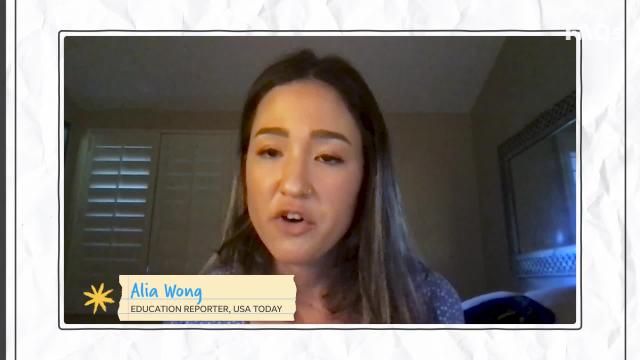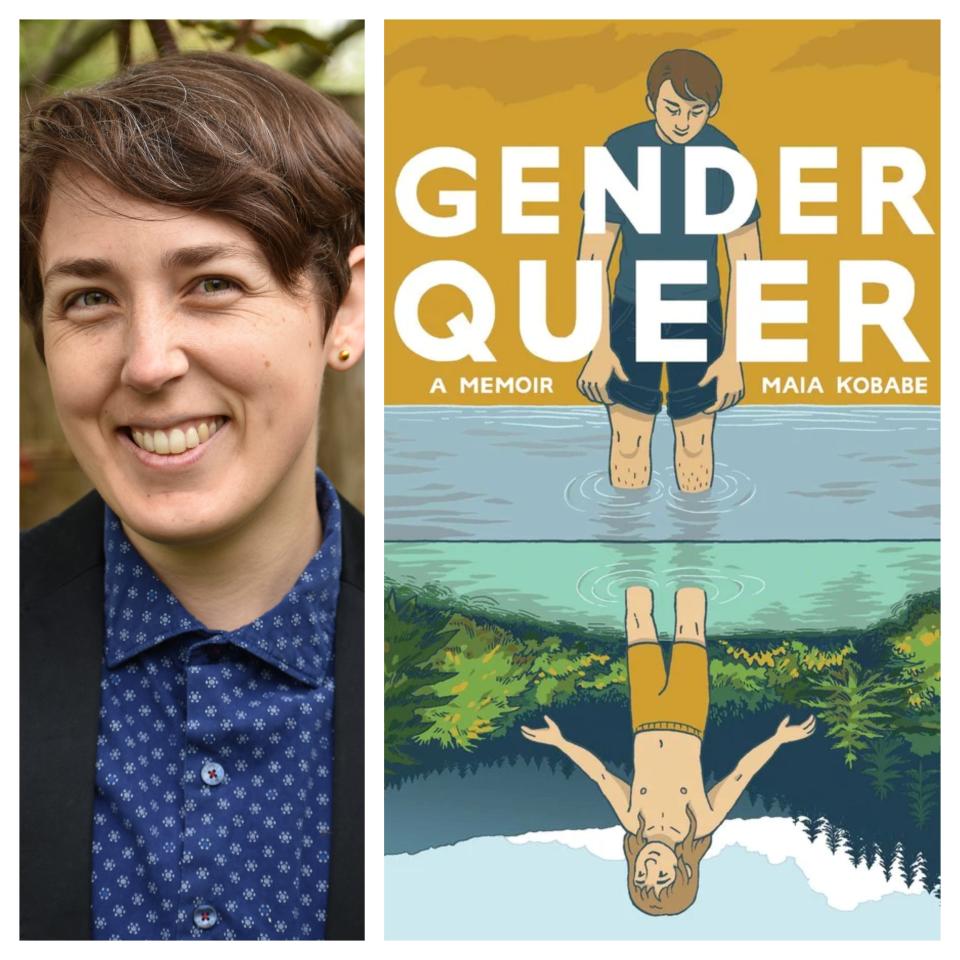'Gender Queer' author Maia Kobabe talks banned books: 'Part of a widescale political attack'

"Gender Queer" doesn't take long to read, an hour or two tops. The brightly colored illustrations in Maia Kobabe's autobiographical graphic novel tell the story of the author's gender journey and eventual coming out as nonbinary and are meant to help readers – both queer readers and their allies – better understand nonbinary identities.
The book is clear, concise, helpful and honest. It's also the most banned book in the country, according to the American Library Association, which last year logged the highest number of book banning attempts since it began recording data in 2000.
"Gender Queer" is in the eye of a political storm, a largely conservative push to remove certain titles from schools and libraries, especially those that center on racism, sexuality and gender identity.
Banned books explained: What are the most banned books and why?
More: These 51 books are targets for book bans. Here's why you should read them now
And censors aren't stopping at school boards. Just a few weeks ago, a Virginia judge tossed out a lawsuit that sought to deem “Gender Queer” obscene and restrict its distribution, even at retailers.
“I’m obviously very grateful that the case was dismissed and that the judge made a very firm ruling,” Kobabe says. “She actually ruled it unconstitutional.”
Kobabe, who uses the gender-neutral pronouns e/em/eir, spoke about book banning and what makes "Gender Queer" such a magnet for censorship:

Question: What do you think makes “Gender Queer” such a target for book banning?
Answer: I think the fact that it is a graphic novel is a big part of it. The fact that it’s an illustrated book makes it more vulnerable to book challenges. It’s very easy for someone to quickly flip through the book and find two or three pages they might disagree with without having to sit down and read the whole thing.
I do think another factor is that it won a couple of awards from the American Library Association in 2020. It won an Alex Award and also a Stonewall Book Award, and many librarians purchase ALA award winners. It was just sort of well-placed in many public libraries and school libraries because the librarians had supported it.
Authors of most banned books in the U.S. speak up: 'We can’t take these freedoms for granted'
Why is it important for students to have free access to “Gender Queer”?
Young people don’t have a ton of discretionary income. It’s so important that they can access media, especially books, for free. A lot of queer, trans and nonbinary kids don’t necessarily have an adult role model in their family or even in their school to turn to. One of the best ways they can look up information on their identity or find answers to questions they might be having or find role models and adults they can look up to, is through media and through books.
What would it have meant to you as a teen to have had a book like "Gender Queer"?
It would have been huge. I was searching everywhere for every tiny scrap of queer narrative I could find. At the most, I usually found stories where a trans or nonbinary character was a very small side character. I don’t remember any books where the trans or nonbinary character was the lead and it was really about their story and about their journey. I think if I’d had a book like this, it could have taken 10 years off of my questioning and confusion and uncertainty about who I was and how I was going to fit into the world.
How does it make you feel to have your book targeted? Does it feel personal?
I absolutely see it as part of a widescale political attack. I actually don’t take almost any of it personally, certainly because of how often people who complain about my book openly state that they have not read it. I see it as part of the organized effort to erase trans, queer and nonbinary voices from the public sphere. I see it as part of the movement of different states limiting access to trans health care and trans students’ rights to be involved in activities, from sports to clubs to journalism. I see it along the lines of the Don’t Say Gay bill in Florida. It all feels like many parts of this really damaging and upsetting and worrying effort to make it harder and harder for trans and nonbinary people to exist in public.
Preserving the freedom to read: After 40 years of Banned Book Week, librarians craft new plan to fight back
Has the backlash changed your approach to writing or has it conversely made you more confident?
I think it’s probably made me more confident because I think the fact that what I’ve written has received such a strong response means that I was saying something that people react to, that people have feelings about. I’m trying to not let it impact too much of what I want to write in the future. I think it strengthens my determination to keep telling very queer, very nonbinary stories in the future because clearly, we need more of them.
Do you hear from young trans and nonbinary readers who’ve read your book?
All the time. I have received probably 10-to-1 more positive responses than negative ones. I’ve had so many readers reach out to say that the book really touched them, that it meant a lot, that it was the first time they felt like they were seen in a narrative, that their own experiences and memories were reflected in a narrative. I’ve had people tell me, ‘It’s like you looked in my brain and wrote my life. How did you do that?’ I’ve had people tell me the book felt like a hug or that it made them feel less alone. I’ve had people tell me they gave the book to their parents, and their parents use their pronouns better now.
Did the book help your family understand you better?
I do think the book helped build my own personal relationships. In a huge regard, I wrote the book as an extended letter to my own parents and my family members, my aunts and uncles because I was trying to come out and I was trying to explain nonbinary pronouns. When I switched to using the pronouns e/em/eir, some of my family was really struggling with that.
My parents both read drafts of the book while I was working on it, and it really opened up a lot of conversations, and a few other people in my family have come out since reading the book. It’s been a really positive thing in my life.
This article originally appeared on USA TODAY: Banned books: 'Gender Queer' author Maia Kobabe speaks on censorship